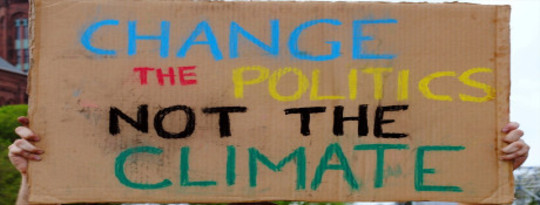
 onsumers worldwide increasingly want renewable energy sources to provide their electricity, yet many governments are ignoring them by continuing to exploit fossil fuels.
onsumers worldwide increasingly want renewable energy sources to provide their electricity, yet many governments are ignoring them by continuing to exploit fossil fuels.
Public support for renewable energies across the world continues to grow, particularly in more advanced economies ? with solar power being especially popular.
At the same time, the policies of the governments in most of these richer countries do not mirror public opinion as many continue to develop fossil fuels, which do not command such popular support.
An example is the UK, where the government wants to exploit gas reserves by the controversial method of fracking – fracturing rock to allow the gas to reach the ground surface. The Conservative government is also promising to cut down on subsidies for onshore wind farms and to build nuclear power stations.
According to the public attitudes report published this month by the British government’s Department of Energy and Climate Change, 36% of the population supports the plan to build new nuclear stations, and only 24% support shale gas extraction by fracking.
Widespread Public Support For Renewables
In contrast, 79% of the public is in favour of renewable energies to provide electricity. The UK has plentiful renewable energy and is exploiting several different types. Solar panels are the most popular form, with 82% of the public supporting their widespread use on the roofs of private houses and, more recently, solar farms in fields in the countryside.
Other high scores for renewables were offshore wind (72% in favour), onshore wind (67%), wave and tidal (73%), and biomass (60%) ? even though all need public subsidy to compete with fossil fuels.
Despite the government’s public support for nuclear, there has been no start on a new station because a subsidy offered by the government is being investigated as potentially illegal under European Union competition legislation. Fracking is still at the exploratory stage and requires years of investment before any power could be produced.
Massive Renewable Growth Of Renewables Anyway
Meanwhile, renewables keep on growing. In the first three months of this year, they produced nearly one-fifth of the UK’s electricity. Renewable energy generation was 43% higher than a year previously, showing the massive growth in the industry.
Both onshore and offshore wind farms are growing quickly, with the UK now having the largest offshore wind industry in the world.
The electricity output from renewables this year was boosted by high rainfall in Scotland, helping the country’s hydropower stations to produce more power, and windy conditions over the whole of the UK improving wind power output.
The British government’s response to these successes has been a policy to reduce the subsidies for both wind and solar power, as improving technology and mass production lower unit costs, while increasing Treasury support for nuclear power and fracking.
Germany has a similar public support for fossil-free energy – with 69% of consumers agreeing that the subsidies are needed to switch electricity generation to renewables. Unlike in Britain, all nuclear stations in Germany are being closed because of public demand, and fracking is unlikely to be considered.
This is partly because 380,000 Germans already work in the renewable energy sector and its development is credited with helping Germany through the recent recession by creating manufacturing and maintenance jobs.
Attitudes in the US to climate change and renewables have also changed in recent years, despite a barrage of propaganda from the fossil fuel industry attempting to cast doubt on the scientists’ predictions of global warming. The public supports renewable energies, irrespective of their views on global warming.
51% Are Alarmed or Actively concerned
The Yale Project on Climate Change Communication reports that 18% of Americans are alarmed by climate change and its effect on their country, and 33% are actively concerned. This is in contrast to 11% who are doubtful that climate change is man-made, and a very vocal 7% who believe it is a hoax or conspiracy got up by scientists and journalists.
Dr Anthony Leiserowitz, the director of the Yale project, said “Whatever people’s view on whether climate change was man-made or not, all sectors agreed that there should be support for alternative energies. Subsidies for more fuel efficient and solar had wide public support. This cut across voters of all parties and no party.”
Even in Australia, where the government has repudiated all efforts to combat climate change, 70% of the public support renewable energies.
In the developing world, public knowledge of renewable energies is less, and so is the support ? although solar power is popular. In India, where power cuts are a major headache for businesses, a recent poll showed that 50% of Indians want more renewable energy, and particularly solar power, believing it will help them get a more consistent electricity supply.
– Climate News Network
About the Author
 Paul Brown is the joint editor of Climate News Network. He is a former environment correspondent for The Guardian newspaper and teaches journalism in developing countries. He has written 10 books ? eight on environmental subjects, including four for children ? and written scripts for television documentaries. He can be reached at [email protected]
Paul Brown is the joint editor of Climate News Network. He is a former environment correspondent for The Guardian newspaper and teaches journalism in developing countries. He has written 10 books ? eight on environmental subjects, including four for children ? and written scripts for television documentaries. He can be reached at [email protected]
 Book by this Author:
Book by this Author:
Global Warning: The Last Chance for Change
by Paul Brown.
Click here for more info and/or to order this book on Amazon.

Related Books:
The Future We Choose: Surviving the Climate Crisis
by Christiana Figueres and Tom Rivett-Carnac
The authors, who played key roles in the Paris Agreement on climate change, offer insights and strategies for addressing the climate crisis, including individual and collective action.
Click for more info or to order
The Uninhabitable Earth: Life After Warming
by David Wallace-Wells
This book explores the potential consequences of unchecked climate change, including mass extinction, food and water scarcity, and political instability.
Click for more info or to order
The Ministry for the Future: A Novel
by Kim Stanley Robinson
This novel imagines a near-future world grappling with the impacts of climate change and offers a vision for how society might transform to address the crisis.
Click for more info or to order
Under a White Sky: The Nature of the Future
by Elizabeth Kolbert
The author explores the human impact on the natural world, including climate change, and the potential for technological solutions to address environmental challenges.
Click for more info or to order
Drawdown: The Most Comprehensive Plan Ever Proposed to Reverse Global Warming
edited by Paul Hawken
This book presents a comprehensive plan for addressing climate change, including solutions from a range of sectors such as energy, agriculture, and transportation.



























